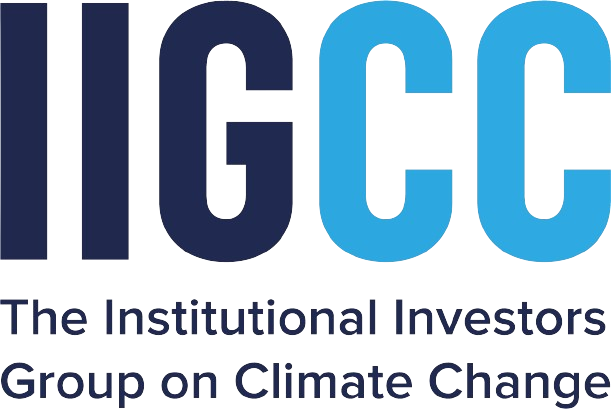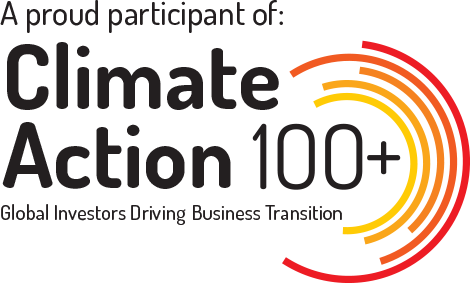At Polar Capital, ESG considerations aren’t new to our investment teams – or indeed to our culture and way of working. By providing a centralised infrastructure upon which our autonomous investment teams can leverage and develop, we believe we are well placed to meet our clients’ needs and desired outcomes.
One of our founding principles is the autonomy of our investment teams, and this same principle is applied to our responsible investment practices.
We believe that incorporating ESG and stewardship into the investment process should be driven by our investment teams themselves. This ensures that ESG analysis, engagement and voting decisions are closely linked to the investment decision-making process, while being supported by robust central resources.
We do not view ESG questions as non-financial. ESG issues have the potential to affect the long-term financial profile of companies in the same way as more obvious financial considerations such as sales, margins, and asset returns.

We have implemented a structure that allows us to integrate ESG concerns and risks into our company strategy.
Overall responsibility for this belongs to the Polar Capital Holdings Board and ESG concerns are prominent in the Board’s discussions and strategy development.
Our Sustainability Committee co-ordinates the company’s sustainability initiatives at a corporate level, including implementation of key regulatory and industry advances and sharing of best practices for ESG integration and knowledge insight internally. It is comprised of members of staff from across the business including the CEO, CIO, CRO and Head of Sustainability.
We have also established our Responsible Investment Working Group, which includes members from all investment teams, providing a forum for them to share approaches and best practice.
These are all centrally supported by the Polar Capital Sustainability team, which assists our investment teams with incoming sustainability-related regulation, provides oversight of responsible investment practices, enhances our sustainability data capabilities and develops our stewardship practices.


Our investment teams lead the implementation of their ESG processes with support from the central sustainability team.
Portfolio ESG characteristics and ESG investment processes are observed and monitored centrally by Polar Capital’s Sustainability team. ESG monitoring is an integral part of their oversight process.
The Sustainability team screens portfolios to highlight any changes in company and portfolio level ESG scores and any lagging company practices with regards to the UN Global Compact principles, human or labour rights, as well as monitoring company-specific carbon performance data and aggregated portfolio-level carbon metrics.
The Sustainability team reviews each investment team on an ongoing basis, with formal four-monthly reviews. During these reviews, the Sustainability team highlights issues on the above-mentioned metrics. However, the investment teams retain discretion over the action they take in respect of the matters highlighted.
An active, bottom-up approach to engagement and voting is an essential way for Polar Capital’s investment teams to perform their duty as stewards of their investors’ capital.
While we are not activist investors, we engage with companies where we feel it will have a positive impact on company performance or enhance stakeholder value. This activity is not outsourced or delegated to a third party but led by the investment teams themselves.
Fund managers and analysts frequently meet company management, an integral part of the investment process. In this forum they may raise strategic ESG issues such as capital allocation, board make-up, remuneration criteria and specific environmental and social questions.
Investment teams also conduct more active engagements, to encourage sustainable practices and actions in investee companies. Topics range from improvements in disclosure on various ESG measures, to more targeted engagements in pursuit of a specific outcome, such as improvement in climate strategy or social practices.
The materiality of an issue is an important consideration for how an engagement is conducted, informing the selection and prioritisation of engagements by investment teams.


Voting
Polar Capital uses Institutional Shareholder Services (ISS) to assist with proxy voting. This highlights all situations where the proxy adviser recommends voting against management, identifies contentious issues and produces research as part of recommendations.
Where ISS recommends voting against management, these issues are reviewed by the investment teams who then ultimately decide how to vote.
Further information on Polar Capital’s approach to voting can be found in the Polar Capital Proxy Voting Policy, and shareholder engagement can be found in our SRD II Shareholder Engagement Policy. Proxy voting records are summarised here.
Exclusions
All Polar Capital funds adhere to formal exclusions on all companies that are linked to the production and/or marketing of controversial weapons (cluster munitions, antipersonnel mines, depleted uranium etc). Polar Capital also considers EU sanctions, the US OFAC list and UN-sanctioned entities.
Investment teams at Polar Capital may implement their own additional exclusion criteria, which are further detailed in the relevant fund documentation.
Industry initiatives and involvement
Polar Capital is a signatory of the UN Principles for Responsible Investment (PRI), a United Nations-supported, global network of investors, that seeks to promote responsible investment and its incorporation into investment decision-making and stewardship practices.
We are a member of the Institutional Investors Group on Climate Change (IIGCC), the European membership body for investor collaboration on climate change. Polar Capital is also a participant in an active collaborative engagement through our Emerging Markets & Asia team with the investor-led engagement initiative Climate Action 100+, which aims to influence the behaviour of key global greenhouse gas emitting companies.
Polar Capital also a signatory to the UK Stewardship Code, which sets high stewardship standards based around twelve core principles. Our annual Stewardship Code Report details the ongoing activity and outcomes of our stewardship approach at fund and firm level.





Legal and Regulatory Factors
The EU Sustainable Finance Disclosure Regulation (SFDR) in Europe, has continued to drive action in sustainable and responsible investment across the industry over the past two years. As many of our funds are Irish and Luxembourg domiciled, the EU SFDR and accompanying regulation has shaped how our funds communicate their responsible investment and stewardship approaches.
We aim to provide clarity and transparency about the way our funds conduct their responsible investment and stewardship practices. All funds classified as Article 8 or 9 under SFDR have detailed disclosures in their prospectus supplements and website disclosures on their respective web pages, which include each fund’s ESG policy, key characteristics of their ESG approach, the methodology for ESG assessment and their engagement approach.
Further information on SFDR-related disclosure can be found in our funds’ prospectus supplements and website disclosures on their respective web pages.
Entity level disclosures are found in our Corporate Documents and Position Statements library.
Polar Capital manages the below funds that, under the SFDR, are classified as promoting environmental or social characteristics (Article 8):
Article 8 Funds
- Polar Capital Funds plc - Artificial Intelligence Fund
- Polar Capital Funds plc - Asian Stars Fund
- Polar Capital Funds plc - Biotechnology Fund
- Polar Capital Funds plc - China Stars Fund
- Polar Capital Funds plc - Emerging Market ex-China Stars Fund
- Polar Capital Funds plc - Emerging Market Stars Fund
- Polar Capital Funds plc - European ex-UK Income Fund
- Polar Capital Funds plc - Financial Credit Fund
- Polar Capital Funds plc - Financial Opportunities Fund
- Polar Capital Funds plc - Global Absolute Return Fund
- Polar Capital Funds plc - Global Convertible Bond Fund
- Polar Capital Funds plc - Global Insurance Fund
- Polar Capital Funds plc - Global Technology Fund
- Polar Capital Funds plc - Healthcare Blue Chip Fund
- Polar Capital Funds plc - Healthcare Discovery Fund
- Polar Capital Funds plc - Healthcare Opportunities Fund
- Polar Capital Funds plc - Japan Value Fund
- Melchior Selected Trust - Melchior European Opportunities Fund
- Polar Capital Funds plc - North American Fund
- Polar Capital Funds plc - UK Value Opportunities Fund
Further, Polar Capital manages the following funds that, under SFDR, are classified as Article 9 funds. These funds have sustainable investment as their objective. Sustainable investment means an investment in an economic activity that contributes to an environmental or social objective, provided that the investment does not significantly harm any environmental or social objective and that the investee companies follow good governance practices.
Article 9 Funds
Polar Capital provides further information in respect of its Article 8 and Article 9 Funds within Annexes to each Fund’s prospectus supplements.


